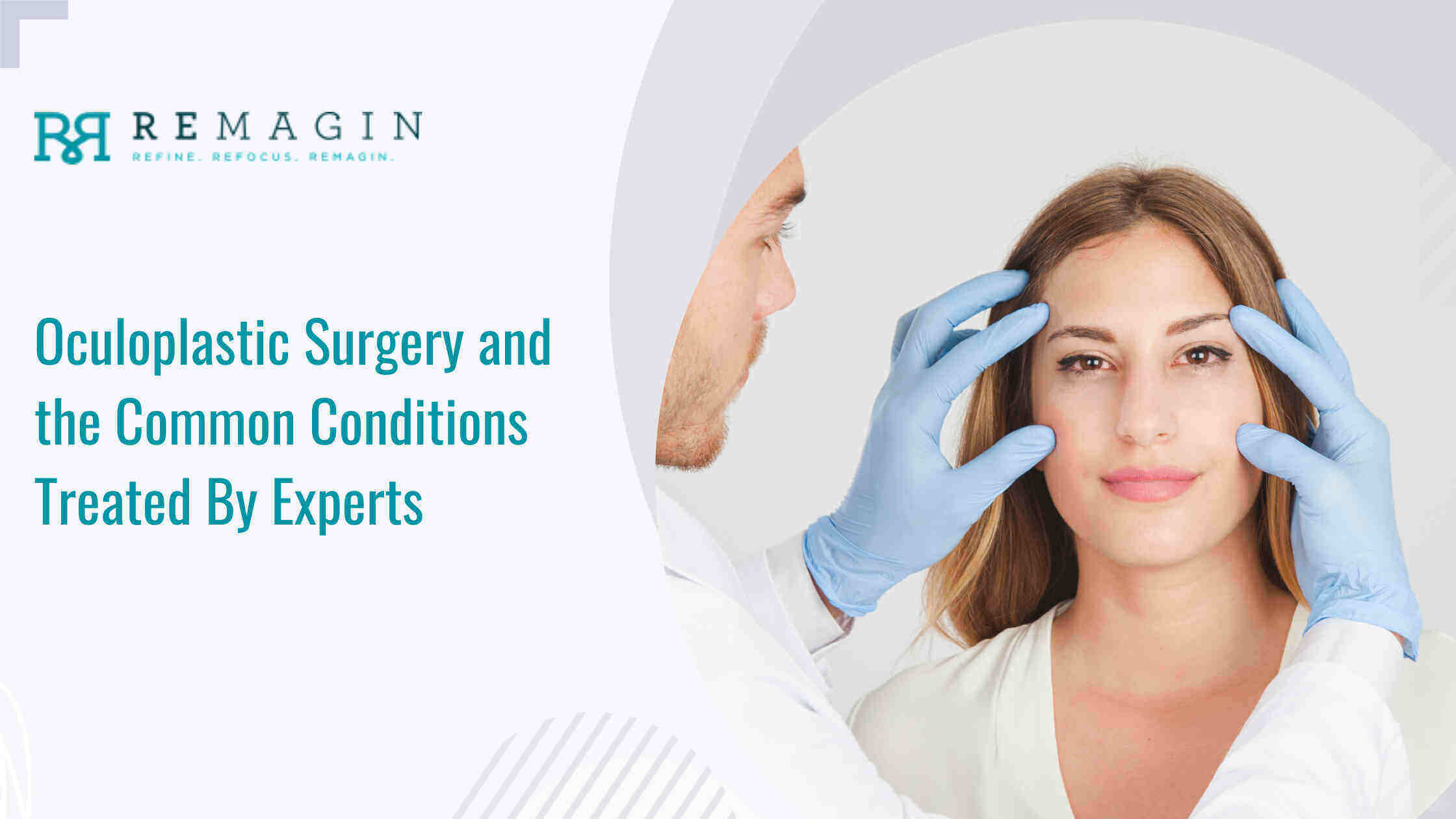



Oculoplastic surgery is a specialized field that combines ophthalmology and plastic surgery to address issues related to the eyelids, orbits, tear ducts, and surrounding facial structures. It plays a crucial role in eye health and aesthetics, improving function and appearance.
In 2023, the global market for oculoplastic surgery was valued at USD 9.31 billion, with projections indicating a growth rate of at least 6% by 2030. This substantial market size highlights the increasing demand and popularity of oculoplastic procedures, underscoring the importance of understanding their applications and benefits.
Let us get into the details of oculoplastic surgery, examining common conditions treated by oculoplastic surgeons and the benefits they offer.
Oculoplastic surgery is a branch of ophthalmology that focuses on the delicate tissues surrounding the eye, including the eyelids, orbits (the bony socket that cradles the eye), and tear ducts. This field combines the precision of surgery with the artistry of aesthetics to improve the functionality and appearance of these vital structures.
Oculoplastic surgery covers a broad range of procedures designed to address both functional and aesthetic concerns around the eyes. This field integrates ophthalmology and plastic surgery to provide comprehensive care for various conditions.
Key areas within this scope include:
By combining these approaches, oculoplastic surgeons address diverse needs, from restoring functionality to achieving cosmetic improvements. Let us now discuss the common conditions treated through this approach.
Oculoplastic surgeons are uniquely trained to address various concerns involving the delicate structures around the eyes. These issues can affect how the eyes work and the overall look of the upper facial area. By combining their expertise in ophthalmology and plastic surgery, oculoplastic surgeons offer tailored solutions to enhance the health and aesthetics of the eyes. Below are some of the most common conditions they treat:
○ Eyelid Malpositions: Conditions such as entropion (inward-turning eyelids) and ectropion (outward-turning eyelids) can lead to irritation, discomfort, and vision issues. Surgical correction realigns the eyelids, enhancing eye protection and overall comfort.
○ Orbital Tumors, Fractures, and Thyroid Eye Disease: The eye socket (orbit) can be affected by various conditions, including tumors, fractures, and thyroid eye disease, which may cause pain, bulging eyes, or vision problems. Oculoplastic surgery addresses these issues by removing tumors, repairing fractures, or managing the effects of thyroid disease to restore normal function and appearance.
○ Blocked Tear Ducts: Obstructed tear ducts can result in excessive tearing, infection, and discomfort. Oculoplastic procedures to clear or bypass these blockages help restore proper tear drainage, reducing symptoms and preventing further complications.
○ Trauma and Congenital Defects: Reconstructive oculoplastic surgery is essential for patients who have experienced trauma, such as facial injuries, or who have congenital defects affecting the eye area. These procedures aim to restore normal function and appearance, ensuring the eyes and surrounding structures work properly and look natural.
○ Brow Lifts, Botox, and Dermal Fillers: Cosmetic oculoplastic procedures enhance the aesthetics of the eyes and surrounding areas. Brow lifts can elevate sagging eyebrows, giving the upper face a more youthful appearance. Botox and dermal fillers smooth wrinkles and add volume, helping patients achieve a refreshed and rejuvenated look.
Addressing these diverse conditions requires specialized knowledge and precise techniques that oculoplastic surgeons possess. As a result, oculoplastic surgery offers several benefits.
Ocuplastic surgery offers numerous benefits for those seeking to revitalize their looks, comfort, and confidence. The common ones include:
Before deciding on oculoplastic surgery, it's important to carefully evaluate several key factors. These considerations will help ensure that the treatment aligns with your health needs and aesthetic goals and that you're fully prepared for the process. Here are some important points to keep in mind:
Oculoplastic surgery is a vital field that bridges the gap between medical and cosmetic needs, improving both eye function and appearance. From addressing functional problems to improving aesthetics and appearance, the expertise of an oculoplastic surgeon can make a substantial difference. However, understanding the treatment procedure and its expectations is necessary. One should consult an experienced provider to get efficient, tailored results.
Are you seeking advanced, effective solutions for your vision problems and aesthetic needs? At Remagin, we are dedicated to providing top-notch oculoplastic care tailored to your unique needs. Our providers are leaders in the field of oculofacial plastic surgery. Contact us today to learn more about how we can help you achieve your vision and aesthetic goals.